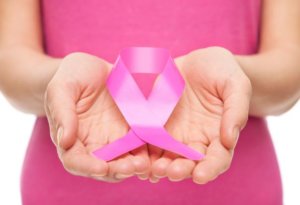Cancer treatment can irreversibly damage a woman’s future fertility
 by Dr. John Storment
by Dr. John Storment
Pink. It’s all over the place during the month of October. From the counter at the post office, to posts on social media, to the accessories people are wearing, pink is everywhere. These days, October is becoming better known for breast cancer awareness than for autumn and Halloween. For me, the color pink at this time of year makes me think of the impact of breast cancer, or any cancer for that matter, on a woman’s future fertility.
At first glance, you may be thinking, “What is a fertility doctor doing blogging about cancer?” Well, I’m glad you asked. While you may think that breast cancer has only a remote link to fertility, or that only uterine or ovarian cancers can directly affect fertility, think again.
You see, it’s not necessarily the cancer that interferes with a woman’s fertility, it’s the cancer treatment that follows. Chemotherapy, radiation and other cancer-killing medications wreak havoc on the cells of the body and can do incredible and irreversible damage to a woman’s future fertility. In fact, for female cancer patients, 40-80 percent become infertile after cancer treatment. That’s why it is so important that cancer patients are aware of the fertility preservation techniques available to those that want to have children in the future.
In the chaos that becomes the aftermath of a cancer diagnosis, however, thinking about future fertility sometimes never crosses the mind of the patient. The rush to begin treatment often overshadows any thought to the possibility of a future family, especially if the woman is very young. But, thinking about your future fertility is so important at this step since the damage cancer treatment does is irreversible on the reproductive system.
Oncologists don’t always counsel their patients on fertility preservation
Research shows that oncology doctors often don’t provide enough information about what can happen to fertility with different cancer treatments, and most doctors don’t direct patients to fertility specialists for counseling before treatment begins. So if your doctor isn’t starting the conversation, it’s important to speak up about your concerns.
For women in their 20s and early 30s, preserving fertility before cancer treatment most often means using advanced cryopreservation (freezing) techniques to freeze a woman’s oocytes (unfertilized eggs) to store for future use. During an egg freezing cycle, a patient will go through many of the same beginning steps that are involved in a typical in vitro fertilization (IVF) cycle commonly used for women who are having fertility issues. These steps include ovulation stimulation, ultrasound monitoring, and egg retrieval. After egg retrieval, the eggs are cultured for a few hours and then frozen the same day.
Freezing your eggs before you start cancer treatment will give you better odds of getting pregnant in the future. While it’s possible you may still have viable eggs after cancer treatment, it’s certainly not assured because chemotherapy, radiation and other cancer treatments can destroy eggs and cause you to enter premature menopause. Your age, type of cancer and treatment approach are factors affecting what’s possible and best for you.
Time is of the essence in acting on fertility preservation before cancer treatment
Because egg freezing can take several weeks from beginning to end, scheduling this before your cancer treatment can feel like you will need to move mountains to make it happen. But rest assured that the physicians at Fertility Answers will fast track your first consultation and treatment schedule in coordination with your oncology team to make sure you can freeze your eggs before chemotherapy begins.
Your team at Fertility Answers is happy to discuss what you need to know about fertility preservation before cancer treatment. We will explain how egg freezing can help you proactively preserve your fertility. Contact us to learn how you can protect and retain your eggs and future fertility.


